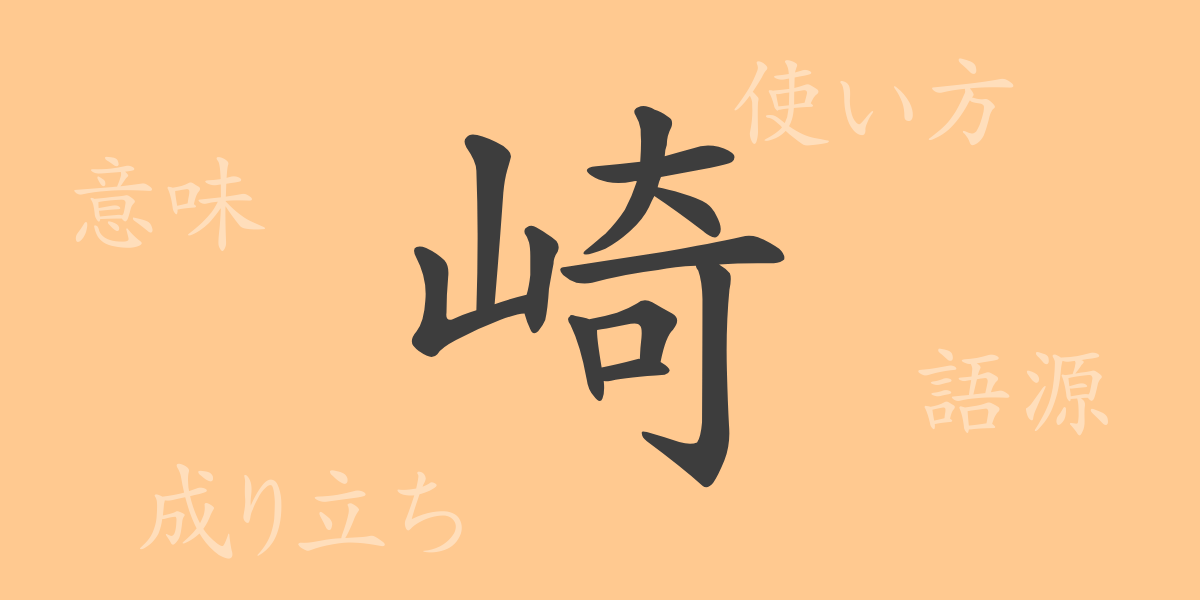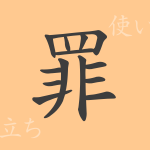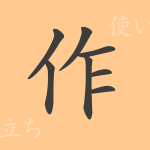The written characters of the Japanese language are imbued with meanings and histories that their forms convey. The common kanji “崎” (さき, saki) is no exception. In this article, we delve into the origins, meanings, uses, readings, stroke count, and radicals of “崎” (さき, saki). We will also explore idioms and proverbs that incorporate this kanji, uncovering the cultural and historical depth embedded within a single character and further exploring the richness of the Japanese language.
Origins of 崎 (さき, saki)
The kanji “崎” (さき, saki) originated in China, used to denote a landform where mountains stretch out into the sea. Its form combines “山” (やま, yama) meaning “mountain” and “大” (だい, dai) meaning “large,” evoking the image of towering mountains. This character is often found in place names, particularly those along coastlines or in mountainous areas.
Meanings and Uses of 崎 (さき, saki)
The kanji “崎” (さき, saki) refers to geographical features such as capes, promontories, or winding coastlines. Beyond place names, it can also be used metaphorically or to describe winding paths. This character frequently appears in place names across Japan, indicating its widespread cultural significance.
Readings, Stroke Count, and Radical of 崎 (さき, saki)
The complexity of the Japanese language is reflected in the readings and structural elements of the kanji “崎” (さき, saki).
- Readings: The on’yomi (音読み) reading is “キ” (ki), and the kun’yomi (訓読み) reading is “さき” (saki).
- Stroke count: “崎” (さき, saki) consists of 11 strokes.
- Radical: The radical is “山” (やま, yama), relating it to other kanji associated with mountains.
Idioms, Phrases, and Proverbs Using 崎 (さき, saki) and Their Meanings
The kanji “崎” (さき, saki) appears in various expressions within the Japanese language. Here are a few examples:
- 熟語 (じゅくご, jukugo): 「半崎」 (はんざき, hanzaki) – Meaning “half-cape,” it can also refer to something in a half-finished state.
- 慣用句 (かんようく, kan’yōku): 「崎を曲がる」 (さきをまがる, saki wo magaru) – To overcome difficulties or challenges.
- ことわざ (ことわざ, kotowaza): 「崎の上の槌」 (さきのうえのつち, saki no ue no tsuchi) – Meaning that attempting to change others forcefully is ultimately futile, as they will revert to their original ways.
Conclusion on 崎 (さき, saki)
The kanji “崎” (さき, saki) symbolizes Japanese geography and culture, widely used in place names and personal names. Its diverse readings and meanings highlight the complexity and richness of the Japanese language, showing that even seemingly simple kanji carry deep histories and meanings. When you encounter idioms and phrases that include “崎” (さき, saki) in daily life, take a moment to consider the cultural and historical background of this fascinating character.

























